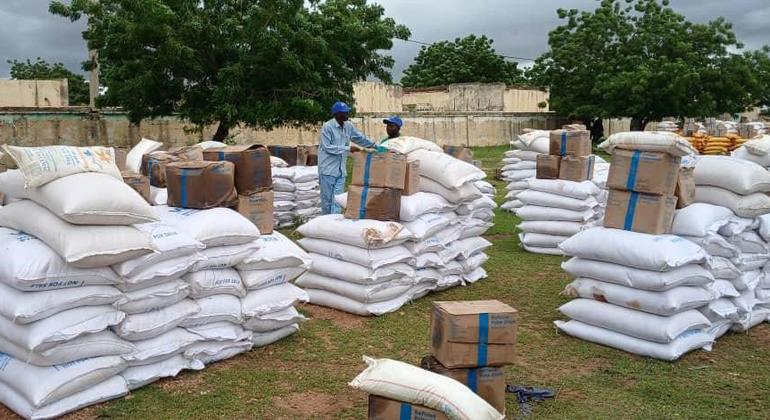The opening of the vital aid route on Friday was a significant development that was welcomed by officials, as it serves as a crucial humanitarian route for delivering urgent aid to millions in Sudan, according to the UN Office for the Coordination of Humanitarian Affairs (OCHA). Reports indicate that 131 approved trucks will carry food and other relief items across the border, aiming to assist hundreds of thousands of people during and after the peak of the country’s rainy season. These supplies are expected to last through Sudan’s lean season in August and September.
Meanwhile, the World Food Programme (WFP) reported on Monday that 50 of its trucks, carrying nearly 5,000 tons of food and nutrition assistance, have been stranded in various locations across Sudan due to flooding and impassable roads, preventing the delivery of aid. The agency aimed to deliver aid to around half a million people via the Tine border, but heavy rainfall has prevented trucks on the Chadian side from crossing. Some trucks have been stranded for up to two weeks. Active fighting and increased violence in different regions of the nation, including in the Sennar and Gedaref State and Khartoum, have further restricted WFP’s access to communities in conflict zones. OCHA emphasized the urgent need for a humanitarian ceasefire to expand humanitarian access, stating that an end to the conflict is the only sustainable solution. It is crucial for the warring parties to cease hostilities and engage in negotiations to resolve the crisis. WFP requires all border crossings in Sudan to open to ensure the urgent delivery of food and nutrition assistance to those in need.
In addition to the challenges posed by conflict and violence, Sudan is also grappling with the effects of heavy rains and flooding, which have driven up humanitarian needs in the country. OCHA reported that approximately 143,000 people in 12 of Sudan’s 18 states have been impacted by the floods. The aid coordination office also documented 27,000 cases of displacement, with the figure likely being underreported due to difficulties accessing hard-to-reach conflict hotspots such as Khartoum, Gezira, Kordofan, and Darfur. The floods have increased the risk of disease outbreaks, including cholera and typhoid, which can be particularly dangerous for malnourished women and children. OCHA noted that there have been hundreds of recent cholera cases in Sudan. Additionally, a dozen states in Sudan are experiencing multiple disease outbreaks simultaneously, and three-quarters of healthcare facilities in the most affected areas are no longer operational.
The situation in Sudan highlights the urgent need for increased humanitarian assistance to address the complex challenges facing the country. The combination of conflict, violence, natural disasters, and disease outbreaks has placed a significant strain on the country’s already vulnerable population. Efforts to secure humanitarian access, deliver aid, and prevent disease outbreaks are essential to mitigating the impact of these crises on Sudanese communities. International organizations such as OCHA and WFP play a crucial role in providing assistance to those in need and advocating for peaceful solutions to the conflicts that are exacerbating the humanitarian situation in Sudan. The international community must continue to support these efforts and work towards a peaceful resolution to the ongoing crises in Sudan.









